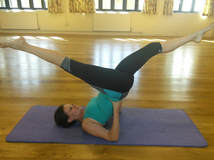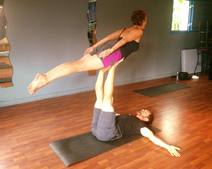|
Mastering a new skill can be be an emotional journey. Understanding the route can help us to enjoy the ride. A practical guide on how we use failure to acquire mastery.  Last week, I joined a running club. I don’t mind confessing that I was quite nervous. I’ve been running a couple of times a week now for a few years, but the prospect of running alongside people who know what they are doing felt very intimidating. This is a club that I've heard has a few world record holders in its membership. And then there’s me, who jogs around the block and does the odd 5 or 10 k, but has never considered herself to be “a runner”. What if I couldn’t keep up? If I found myself halfway across the city, slowing everyone else down, having had the audacity to think I was worthy of being among them? If my running style is just really embarrassing? My rational side knew that I would be fine, but reason only has limited power to calm nerves. I reflected that learning is an emotional process, and that this is as integral to one's own self development as the skills and abilities themselves. When it comes to any new skill, there are stages we go through to achieve mastery. Educational psychologists often refer to the four stages of learning (1). In my experience as both teacher and learner, each has its own associated emotions.  Stage One - Unconscious incompetence: When you begin learning a new skill, you know that you have a lot to learn, but you may not be aware of where you are going wrong. In fitness, this might mean that you are moving in an uncoordinated way, or even unsafely. For example, in a squat you might roll your knees in towards each other, stick your behind out too much or let your chest drop, and when your teacher points it out to you, you may not realise that you were moving that way, nor even that they are mistakes. Stage Two - Conscious incompetence: Now you are aware of what you should be doing, but it feels unnatural and difficult, and can feel overwhelming. As soon as your knees are in the right place, your tail end sticks out. Correct that and you’ve forgotten that your chest is now bending forward. By the time you’ve fixed your chest, your knees have started rolling in again. It can be discouraging to always be aware of what you’re doing wrong, but it is a key part of the learning process. Stage Three - Conscious competence: With practice and correction, you will reach the stage where, when you’re focussed, you can practice with good quality. But, take your mind off what you’re doing and straight away you fall back into the old habits. A quick reminder, and you’re back on form. This is a motivating stage, where you start to feel a sense of progress. Stage Four - Unconscious competence: This is when your hard work has paid off. You’ve broken the original faulty habits, and now instinctively practice with good quality. Your sense of satisfaction is well deserved, but don't rest on your laurels! Now you are ready to challenge yourself with more advanced variations, knowing that you are moving from a secure foundation. You may find that you are back at stage one for the next level. In nearly every discipline, this cycle continues indefinitely. As we master one skill, the next skill is within our sights. Repeatedly making - and correcting - mistakes is an integral part of the learning process. This is why I like to encourage practice over perfection. If you are always practicing perfectly, you are no longer challenging yourself, and are at risk of boredom and a sense of lack of progress. As it turns out, my first trip out with the runners was absolutely brilliant. The coach was kind and skilled, and stayed back with me as I fell behind on the homeward stretch, and the others went off ahead. I continued: sweaty and bright crimson, but feeling welcome. Of course, the others weren’t in the least bit impatient with me - why would they be? - and I am quite sure that in time these strangers will become my friends.  My experience makes we want to offer an additional stage prior to the other stages of learning; as critical as any of the others, and one which I believe is responsible for the reluctance of people to take up new exercise regimes, or any other new hobby that they might aspire to. Stage zero - Overcoming fear: When you start something new, you know that you’re going to be bad at it. You know that the teacher is going to see that you are bad at it. Taking that first step of presenting your unskilled self to the teacher and other participants is something that the majority of people will be nervous about. But remember that no good coach or teacher will judge you for being a beginner. It is their job - and mine - to support you through the stages of competence, and guiding people towards improving their movement is what I am passionate about. Everyone has to start somewhere – so start in a place that is supportive. My top tips when starting a new class would be - arrive early so that you can introduce yourself to your teacher (tell them if you are feeling nervous!), know your limits, and remember that everyone else in the class was a beginner once, too. 1. Developed by Noel Burch, co-author with Thomas Gordon of the Teacher Effectiveness Training Book, 1974. Comments are closed.
|
AuthorFitness and Pilates instructor with a passion for science. Archives
November 2021
Categories |
 RSS Feed
RSS Feed
